Several recent studies have shown the effects of caffeine on antibiotics. Specifically, research from the University of Tübingen and the University of Würzburg (Germany) found that caffeine can reduce the effectiveness of some antibiotics against Escherichia coli bacteria, according to the health website Medical News Today (UK).

Patients should limit drinking coffee immediately before or after taking antibiotics to limit the possibility of caffeine affecting the effectiveness of the drug.
PHOTO: AI
This is because caffeine affects the activity of genes that control transport proteins, making it harder for antibiotics to enter bacterial cells. For example, the antibiotic ciprofloxacin, commonly used to kill E. coli bacteria, is less effective when caffeine is present because bacteria absorb less of the drug.
Another study published in the journal Acta Biochimica Polonica showed the effect of caffeine on some antibiotics in test tube conditions. Specifically, some antibiotics such as chloramphenicol, erythromycin, nalidixic acid will have reduced antibacterial effectiveness when interacting with caffeine. As a result, the antibiotics reduce their ability to inhibit bacteria.
However, experts note that these studies were mainly conducted in test tubes, on animals or on E. coli bacteria. Therefore, there is currently not enough clinical data, i.e. testing on real patients, to confirm that drinking coffee in the morning while taking antibiotics will make the drug ineffective. However, the above findings also serve as a warning about the potential interaction between daily foods and drinks containing caffeine and antibiotics.
In addition, several factors also greatly influence antibiotic effectiveness, such as drug dose, antibiotic type, method of administration, and bacterial strength.
Caffeine intake is an important factor to consider. In these studies, the actual amount of caffeine people consume on a daily basis is not clear. How many cups of coffee people consume, how far apart they drink them, and what they eat are all important factors. Furthermore, the effect of caffeine on antibiotic effectiveness will vary depending on the type of bacteria and antibiotic.
The same bacterial infection, the same dose of antibiotics and caffeine can cause different reactions in one person than another. This is due to factors such as genetics, physical condition, liver and kidney function and the rate at which caffeine is metabolized.
Therefore, to avoid reducing the effectiveness of antibiotics due to the effects of caffeine, patients should talk to their doctor or pharmacist, especially when prescribed antibiotics such as ciprofloxacin. Because research shows that ciprofloxacin is one of the drugs that can be affected by caffeine.
The timing of coffee consumption is also important. Patients should be careful to avoid drinking coffee immediately before or after taking antibiotics. They should wait a few hours for the drug to be absorbed into the bloodstream before drinking coffee, according to Medical News Today .
Source: https://thanhnien.vn/uong-ca-phe-sang-co-anh-huong-den-hieu-qua-khang-sinh-khong-185250927183741685.htm





![[Photo] Prime Minister Pham Minh Chinh launched a peak emulation campaign to achieve achievements in celebration of the 14th National Party Congress](https://vphoto.vietnam.vn/thumb/1200x675/vietnam/resource/IMAGE/2025/10/5/8869ec5cdbc740f58fbf2ae73f065076)

![[Photo] Prime Minister Pham Minh Chinh chairs the Government's online conference with localities](https://vphoto.vietnam.vn/thumb/1200x675/vietnam/resource/IMAGE/2025/10/5/264793cfb4404c63a701d235ff43e1bd)




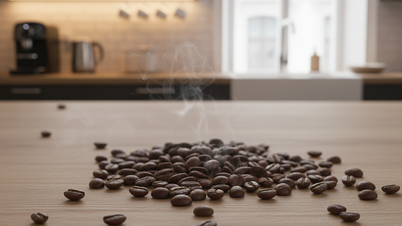


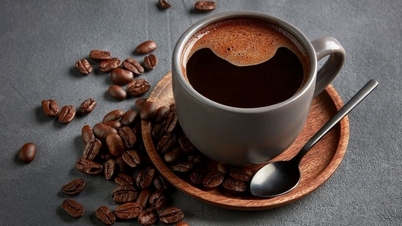

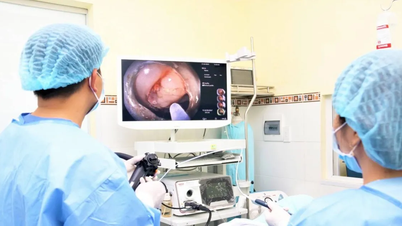

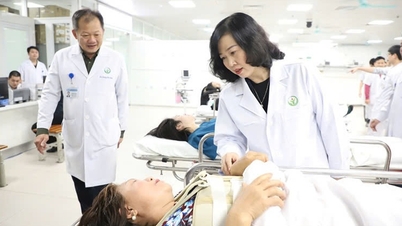
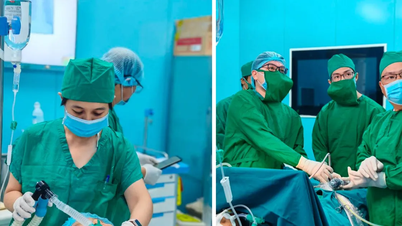


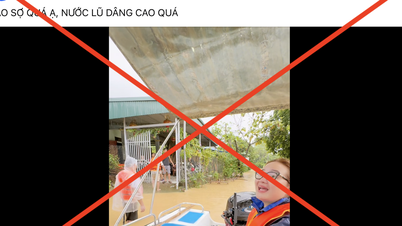


































![[VIDEO] Summary of Petrovietnam's 50th Anniversary Ceremony](https://vphoto.vietnam.vn/thumb/402x226/vietnam/resource/IMAGE/2025/10/4/abe133bdb8114793a16d4fe3e5bd0f12)

![[VIDEO] GENERAL SECRETARY TO LAM AWARDS PETROVIETNAM 8 GOLDEN WORDS: "PIONEER - EXCELLENT - SUSTAINABLE - GLOBAL"](https://vphoto.vietnam.vn/thumb/402x226/vietnam/resource/IMAGE/2025/7/23/c2fdb48863e846cfa9fb8e6ea9cf44e7)



































Comment (0)